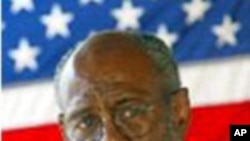<!-- IMAGE -->
With the end of the East-West divide of the Cold War and new challenges of the 21st century, world events will no longer be shaped exclusively in the capitals of super- and near superpowers. Issues such as energy needs, disease prevention and food scarcity that know no borders loom large, and dealing with them effectively will require the efforts of many nations. For this and other reasons, the United States is committed to being a strong partner with Africa.
In a recent speech delivered in Washington, Johnnie Carson, Assistant U.S. Secretary of State for African Affairs, said that President Barack Obama has a strong personal interest in Africa and he intends to give nations there a much greater priority among U.S. foreign policy interests.
The U.S. will work in partnership with African governments and civil society to strengthen democratic institutions, promote sustained economic development and growth across the continent, and continue to support public health programs, he said. It will also work with African leaders to prevent and resolve conflicts and deal with growing problems of narcotics trafficking, climate change and energy security.
This interest in African affairs has been demonstrated by numerous visits by top American officials to several nations there. President Obama traveled to Ghana in July and Secretary of State Hillary Clinton made a 7-nation swing there the following month.
Despite the well-known challenges that confront Africa today, the United States remains optimistic and hopeful about the continent, one with vast potential and promise.




